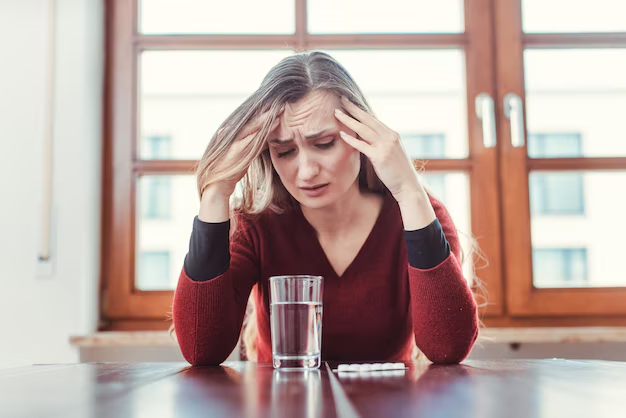Can Anxiety Really Cause Headaches? Understanding the Connection
Feeling the weight of the world on your shoulders is more than just a phrase; it often comes with physical manifestations. Anxiety and headaches are two common issues that seem to go hand in hand, but is there really a link? If you’ve ever felt your head pounding after a stressful day, you’re not alone. Let’s delve into the connection between anxiety and headaches, exploring how anxiety might trigger these headaches, and what you can do to manage them effectively.
The Link Between Anxiety and Headaches
How Stress and Anxiety Affect the Brain
When you’re anxious or under stress, your body responds with a “fight or flight” reaction. This response releases stress hormones like cortisol and adrenaline, designed to help you manage a perceived threat. While useful in the short term, chronic anxiety means your body is continuously pumping these chemicals, leading to tension and physical discomfort, including headaches.
Types of Headaches Associated with Anxiety
Tension Headaches: These are the most common type linked to stress and anxiety. They are often described as a constant pressure or tightness around the head, which can feel like a band squeezing your skull.
Migraines: Although primarily a neurological condition, migraines can be triggered by stress and anxiety. These headaches are characterized by throbbing pain, often on one side of the head, and can include symptoms like nausea and sensitivity to light and sound.
Cluster Headaches: Less common but very debilitating, these headaches can be influenced by stress levels, although their primary triggers are more diverse.
Why Anxiety Triggers Headaches
The reason anxiety can lead to headaches lies in the body's physical response to stress:
- Muscle Tension: Anxiety leads to muscle tension, particularly in the neck and shoulders, which can contribute to the onset of tension headaches.
- Altered Sleep Patterns: Anxiety often disrupts sleeping patterns, and a lack of restorative sleep is a well-known trigger for headaches.
- Neurochemical Changes: The chemical changes in the brain during prolonged anxiety affect brain function and can provoke migraine episodes.
Managing Anxiety-Induced Headaches
Practical Strategies to Alleviate Symptoms
When headaches strike as a result of anxiety, there are several ways you can manage the uncomfortable symptoms:
Relaxation Techniques: Engage in deep breathing exercises, progressive muscle relaxation, or meditation. These practices help in reducing muscle tension and promoting a sense of calm.
Exercise: Regular physical activity is effective in reducing anxiety levels and improving mood. Aerobic exercises like walking, cycling, or swimming release endorphins, which are natural painkillers.
Routine Sleep Habits: Establish a consistent sleeping routine to ensure adequate rest. This involves going to bed and waking up at the same time every day.
Healthy Nutrition: Diet can influence both anxiety and headaches. Consuming a balanced diet rich in fruits, vegetables, lean proteins, and whole grains can foster better health outcomes.
Hydration: Staying well-hydrated is essential as dehydration can exacerbate headache symptoms.
Avoidance and Coping Strategies
While it’s impossible to eliminate all stress from life, learning how to manage it can reduce the frequency and severity of headaches:
Time Management: Effective time management can prevent overwhelming stress. Use tools like planners or digital apps to prioritize tasks and manage deadlines.
Therapy: Cognitive Behavioral Therapy (CBT) is a popular choice for those dealing with anxiety. It helps reframe negative thought patterns and develop coping strategies for stress.
Mindfulness and Yoga: Engaging in mindfulness and yoga can enhance your body's defenses against anxiety by promoting relaxation and reducing stress levels.
Exploring Medical Options Wisely
It’s vital to approach options like medication with a thoughtful mindset:
Consultation with Health Professionals: Always consult a healthcare provider when headaches are persistent or severe. They can offer insights tailored to your specific health needs.
Non-Prescription Remedies: Sometimes over-the-counter medications can alleviate headache symptoms. Always use these as directed by healthcare guidance.
The Broader Impact of Anxiety-Induced Headaches
Emotional and Social Repercussions
Anxiety that results in frequent headaches can significantly affect your psychological well-being and interpersonal relationships:
Workplace Productivity: Dealing with daily headaches can interfere with job performance and career progression.
Social Life: The constant disruption from headaches can limit social interaction and lead to a sense of isolation.
Preventative Techniques
Consider building long-term resilience against anxiety and its physical manifestations:
Stress Management Workshops: Engage in workshops that focus on stress management techniques. They provide skills to help navigate stressful environments more effectively.
Support Networks: Lean on family, friends, or support groups, as strong social networks are vital in managing anxiety.
Final Thoughts: Empowering Yourself Against Anxiety
Understanding the connection between anxiety and headaches can empower you to take proactive steps towards your well-being. While it’s challenging to eliminate anxiety altogether, learning to manage and respond to it differently can make a significant impact on your overall health.
You are not alone in this journey, and employing a combination of practical strategies, professional guidance, and personal reflection can improve your quality of life. Live comfortably, knowing that identifying triggers and establishing healthy habits provides a robust framework against the dual challenge of anxiety and headaches.
Quick Tips for Managing Anxiety-Related Headaches 🤓💆♂️
- Breathe and Relax: Practice deep breathing or meditation for instant relief.
- Stay Active: Regular exercise boosts mood and reduces tension.
- Get Your Zzz’s: Consistent sleep patterns prevent headaches.
- Balanced Diet: Keep nourished with a healthy, varied diet.
- Hydrate: Drink plenty of water—dehydration can worsen headaches.
- Plan: Use planning tools to manage tasks and reduce stress.

